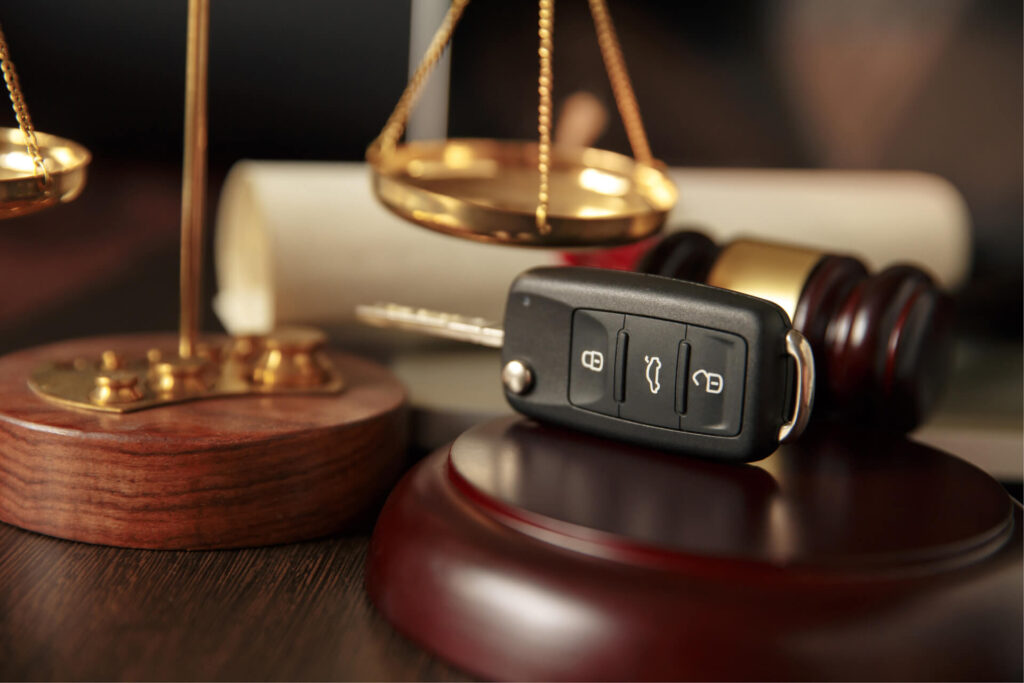Driving under the influence of marijuana, commonly referred to as a weed DUI, is a serious offense that can have significant legal consequences. In Virginia, as in many other states, laws regulating marijuana use and driving are stringent. Understanding how police test for a weed DUI can help you navigate the legal landscape if you find yourself facing such charges.
If you’ve been charged with a weed DUI or know that you’re under investigation for a weed DUI violation, seek legal representation from a reputable Virginia DUI lawyer immediately. Our team has years of criminal law knowledge and experience serving the local areas of Manassas, Fairfax, and all of Prince William County.
With over 25 years of experience, we’ve handled more than 10,000 cases and served over 5,000 happy clients—making us a formidable advocate for those facing weed DUI charges. We’re dedicated to providing aggressive and compassionate legal representation to ensure that your rights are protected and that you receive the best possible outcome for your case.

Definition of Marijuana DUI
A marijuana DUI occurs when a driver operates a vehicle while impaired by marijuana. Unlike alcohol, where impairment levels can be measured by blood alcohol concentration (BAC), determining marijuana impairment is more complex due to the way THC, the psychoactive component of marijuana, is metabolized in the body.
THC affects individuals differently based on various factors such as frequency of use, body fat percentage, and metabolism. Unlike alcohol, which is water-soluble and leaves the body relatively quickly, THC is fat-soluble and can remain in the body for days or even weeks after use. This makes it challenging to establish a clear-cut level of impairment.
On top of that, THC levels in the blood do not correlate directly with impairment. A person could have high levels of THC in their system and not be impaired, or conversely, have low levels and be significantly impaired. This variability complicates the process of determining whether a driver is under the influence of marijuana at the time of driving.
Because of these complexities, law enforcement agencies use a combination of weed DUI tests to assess impairment, including field sobriety tests, oral fluid tests, blood tests, urine tests, and sometimes breath tests. Each method has its own set of challenges and limitations, making it essential for drivers to understand their rights and the legal processes involved.
Laws Regulating Marijuana Use and Driving in Virginia
In Virginia, it is illegal to drive under the influence of any drug, including marijuana. The state has a zero-tolerance policy for drivers under the age of 21 and strict penalties for those found guilty of a marijuana DUI. Penalties can include fines, license suspension, and even jail time.
Zero-Tolerance Policy for Underage Drivers
Virginia enforces a zero-tolerance policy for drivers under the age of 21. This means that any detectable amount of marijuana in their system can result in a DUI charge. Underage drivers face severe consequences, including immediate license suspension, mandatory participation in substance abuse education programs, and potential fines. The goal of this policy is to deter young drivers from using marijuana and driving, thereby reducing the risk of accidents and promoting road safety.
Penalties for Marijuana DUI
For drivers over the age of 21, the penalties for a marijuana DUI can be severe and escalate with each subsequent offense. A first-time offender may face fines ranging from $250 to $2,500, depending on the circumstances of the arrest. Additionally, the court may impose a license suspension of up to one year and require the offender to complete a drug education or treatment program.
Repeat offenders face even harsher penalties. A second DUI offense within ten years can result in mandatory jail time ranging from 20 days to one year, increased fines, and a longer license suspension. A third offense is classified as a felony and can lead to a prison sentence of one to five years, substantial fines, and an indefinite license suspension.
Aggravating Factors
Certain aggravating factors can increase the severity of the penalties for a marijuana DUI. These factors include having a minor in the vehicle at the time of the offense, causing an accident that results in injury or death, and having an exceptionally high level of THC in the system. In such cases, the court may impose additional fines, longer jail sentences, and extended license suspensions.
Legal Implications
Being convicted of a marijuana DUI in Virginia can have long-lasting legal implications. A DUI conviction remains on your criminal record permanently and can affect various aspects of your life, including employment opportunities, insurance rates, and your ability to obtain certain professional licenses. If you fail marijuana impairment tests by the police, it’s imperative to seek legal representation to mitigate the potential—and often severe—consequences.
Marijuana DUI Testing Methods
Field Sobriety Tests (FSTs)
Field Sobriety Tests are often the first line of assessment used by police officers to determine if a driver is impaired by marijuana. Standard tests include the Horizontal Gaze Nystagmus (HGN), the Walk-and-Turn, and the One-Leg Stand. These tests are designed to assess a driver’s balance, coordination, and ability to follow instructions. However, their reliability in detecting marijuana impairment is controversial, as they were initially developed to detect alcohol impairment.
Oral Fluid Testing
Oral fluid tests involve taking a saliva sample from the driver to test for the presence of THC. These tests are relatively quick and non-invasive. However, their accuracy and reliability can vary. THC can remain in saliva for up to 24 hours after use, which means a positive result does not necessarily indicate current impairment.
Blood Tests
Blood tests are considered one of the most accurate methods for detecting THC levels in the body. The procedure involves drawing a blood sample and analyzing it for THC concentration. THC can be detected in the blood for several hours after use, but the timeframe for detection can vary depending on the individual’s metabolism and frequency of use. Blood tests can provide a more precise measure of THC levels, but they are also more invasive and require a warrant.
Urine Tests
Urine tests are less commonly used for marijuana DUI cases but can still be employed in certain situations. These tests detect the presence of THC metabolites, which can remain in the body for days or even weeks after use. While urine tests can indicate past marijuana use, they are not reliable for determining current impairment.
Breath Tests
Breathalyzers are commonly used for alcohol DUIs, but their effectiveness in marijuana DUI cases is limited. Currently, there are no widely accepted breath tests for detecting marijuana impairment. Research is ongoing to develop reliable breathalyzer technology for THC, but as of now, breath tests are not a standard method for marijuana DUI detection.

Legal Defenses for Marijuana DUI
Challenges to Field Sobriety Tests
One common defense is to challenge the accuracy and reliability of Field Sobriety Tests. Since these tests were designed to detect alcohol impairment, their effectiveness in identifying marijuana impairment is questionable.
Accuracy of Blood and Urine Tests
Another defense strategy is to question the accuracy of blood and urine tests. Factors such as improper handling of samples, lab errors, and individual variations in THC metabolism can all affect test results.
Rights During Traffic Stops
It is essential to know your rights during a traffic stop. You have the right to remain silent and to request an attorney. Any evidence obtained in violation of your rights can be challenged in court.
The Benefits of Having The Law Offices of Mike A. Pignone In Your Corner
Working with an experienced Virginia DUI attorney can make a significant difference in the outcome of your case. With over 25 years of experience and a deep understanding of DUI laws in Virginia, our team provides aggressive and compassionate legal representation to protect your rights and achieve the best possible outcome.
Experience With Virginia DUI Laws
Our extensive experience in handling DUI cases means we’re well-versed in the nuances of Virginia’s DUI laws, including those specific to marijuana. Our familiarity with the legal system allows us to navigate complex legal procedures efficiently, ensuring that no detail is overlooked in your defense.
Personalized Legal Strategy
Every DUI case is unique, and we understand the importance of tailoring a defense strategy to the specific circumstances of your case. We take the time to thoroughly review all evidence, identify weaknesses in the prosecution’s case, and develop a robust defense strategy aimed at minimizing the impact of the charges on your life.
Strong Negotiation Skills
We’re known for our strong negotiation skills, which can be crucial in DUI cases. Whether it’s negotiating a plea deal or seeking alternative sentencing options, our ability to communicate effectively with prosecutors can lead to more favorable outcomes, such as reduced charges or penalties.
Courtroom Experience
If your case goes to trial, having an attorney with extensive courtroom experience is invaluable. Our seasoned litigators are comfortable in the courtroom and adept at presenting a compelling case to judges and juries. This ability to cross-examine witnesses and challenge evidence will be pivotal in securing a favorable verdict.
Compassionate Support
Facing a DUI charge can be an overwhelming and stressful experience. We provide not only legal acumen but also compassionate support throughout the process. We’re committed to keeping you informed, answering your questions, and giving reassurance during this challenging time.
If You’re Facing a Marijuana DUI charge, Contact Us Today for Legal Assistance
Understanding how police test for a weed DUI is crucial for anyone facing such charges. From Field Sobriety Tests to blood and urine tests, each method has its own set of challenges and limitations. Knowing your rights and having strong legal representation can make a significant difference in the outcome of your case. Call us today to discuss your legal defense and ensure your rights are protected. You can reach us at 571-335-0474 or fill out our secure intake form.

